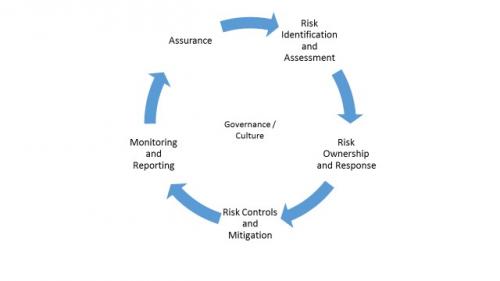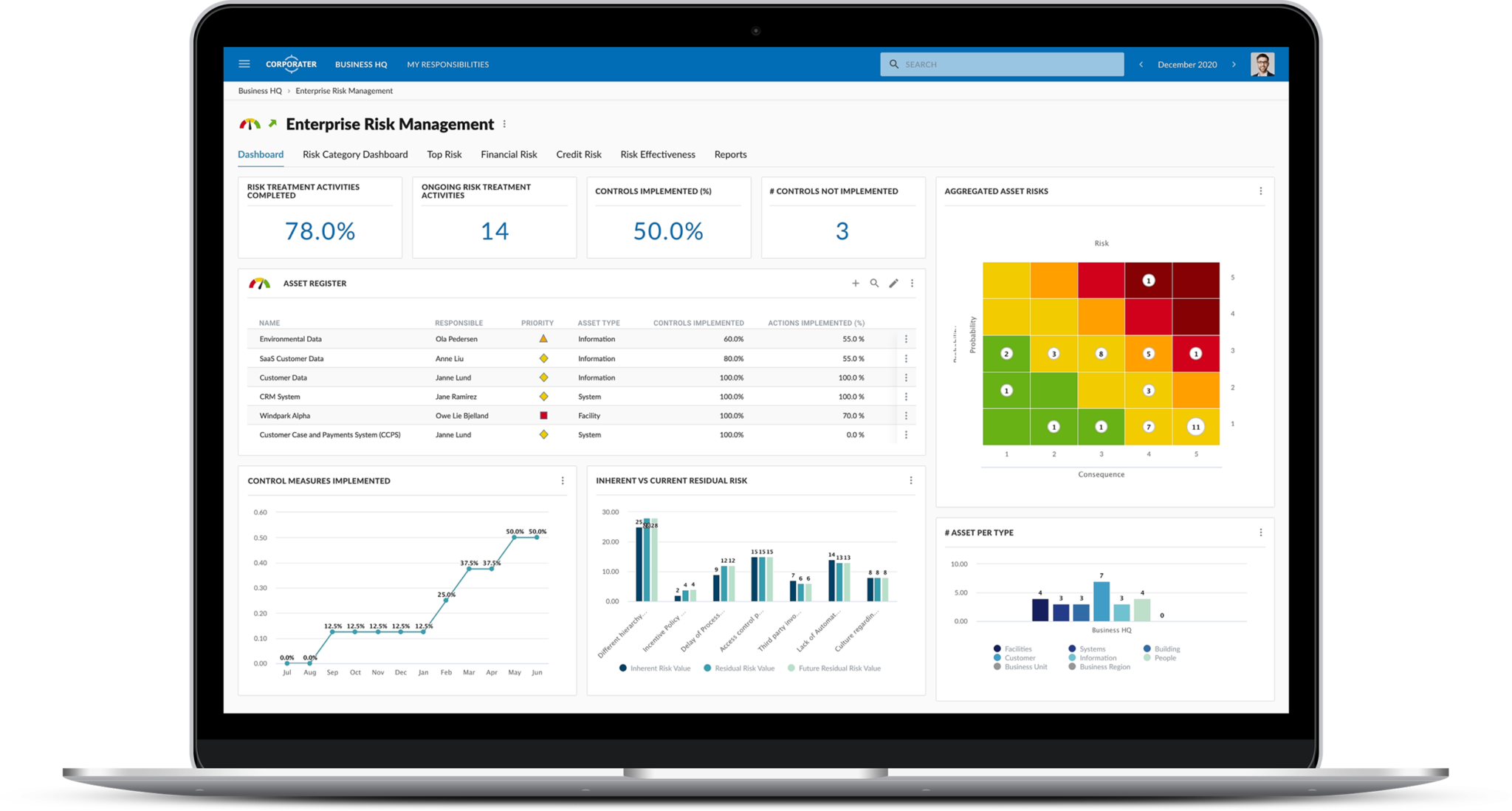Explore the Role of AI in Encouraging Ethics and Stability to Fight Insider Threats Successfully
The integration of AI in business frameworks has ended up being crucial in dealing with insider dangers. By using advanced analytics and real-time tracking, AI systems can determine inconsistencies from ethical habits amongst staff members (Insider threats). This aggressive approach not just enhances conformity but likewise promotes an atmosphere of depend on. As business progressively count on these innovations, concerns emerge about their effectiveness and potential implications for workplace culture. What exists ahead in the development of AI's role in advertising stability?
Recognizing Insider Threats and Their Effect on Organizations
Although organizations typically concentrate on outside hazards, expert risks pose a considerable risk that can undermine protection and integrity. These dangers emerge from people within the company, such as specialists or employees, that might abuse their access to sensitive details for personal gain or harmful intent. The influence of expert hazards can be serious, resulting in monetary losses, reputational damages, and lawful ramifications.
Elements adding to insider threats consist of frustration with the office, lack of oversight, and poor employee training on protection protocols. Organizations commonly struggle to recognize these threats, as they can be hard to identify until substantial damage has actually happened. Prevention methods have to concentrate on cultivating a culture of depend on and accountability, together with carrying out robust monitoring and reporting systems. By recognizing and resolving the complexities of insider risks, organizations can boost their security position and safeguard their important properties from interior threats.
The Advancement of AI in Work Environment Safety
As companies increasingly challenge diverse safety obstacles, the combination of expert system (AI) in workplace safety has evolved significantly. At first, AI applications focused largely on automating standard safety procedures, such as gain access to control and monitoring. Improvements in equipment discovering and data analytics have transformed AI into an aggressive device qualified of determining prospective threats and susceptabilities in real-time.
Organizations now utilize AI-driven systems to evaluate huge amounts of information, allowing them to spot strange actions that might suggest insider threats. This development has led to the development of advanced algorithms that can pick up from historic occurrences, improving the system's anticipating abilities. Furthermore, AI tools are increasingly utilized to streamline occurrence feedback procedures, permitting security groups to act swiftly and efficiently.
Exactly How AI Monitors Worker Actions for Ethical Compliance
Man-made knowledge plays an important function in checking employee habits to assure ethical conformity within organizations. AI systems analyze large amounts of data created by employees, including interactions, transactions, and accessibility to delicate info. By employing advanced algorithms, these systems can determine deviations from established ethical criteria and company policies.
Equipment understanding models continuously adjust to identify patterns of habits that could indicate honest violations, such as unauthorized information access or unusual deal tasks. Insider threats. On top of that, AI-driven tools can supply real-time notifies to administration, facilitating prompt treatments when possible dangers are spotted
The assimilation of AI into conformity surveillance not only enhances the organization's ability to copyright integrity but additionally cultivates a culture of liability among workers. By promoting transparency, AI systems work as a deterrent versus unethical behavior, making certain that staff members continue to be aligned with organizational values and moral requirements.
Examining Patterns: Identifying Risky Behavior With AI
A growing variety of organizations are leveraging AI to examine patterns that might show dangerous habits among staff members. By making use of sophisticated algorithms, these systems can look via vast quantities of information, identifying anomalies in individual behavior that could suggest prospective expert threats. AI can discover uncommon accessibility patterns to sensitive info, such as workers accessing documents outside their typical range of work or during irregular hours. Furthermore, behavior analytics can highlight regular modifications in a staff member's interaction style or collaboration practices, which may signify underlying issues. This proactive technique allows companies to pinpoint threat aspects before they escalate into significant dangers. The combination of AI into checking methods not only improves safety however additionally fosters a culture of liability and honest behavior. By determining these patterns, companies can better comprehend the behavior dynamics within their labor force, eventually advertising a more secure and much more ethical workplace.
Real-Time Insights: Immediate Actions to Possible Dangers
Real-time understandings with anticipating analytics and automated sharp systems play a vital duty in addressing prospective dangers to principles and honesty. By leveraging these modern technologies, organizations can prepare for risky behaviors and respond promptly to minimize dangers. This positive method enhances accountability and promotes a society of honesty in various atmospheres.
Anticipating Analytics Applications

Automated Alert Systems
Predictive analytics offers a structure for organizations to boost their responsiveness to honest worries through automated sharp systems. These systems make use of real-time data to monitor tasks, identifying anomalies that might symbolize potential expert hazards. By leveraging maker knowing algorithms, automated alerts can recognize patterns of behavior that differ developed norms, permitting speedy treatment. This immediacy is essential in mitigating dangers connected with dishonest techniques. Automated sharp systems can improve communication among appropriate stakeholders, making sure that prospective hazards are attended to without delay and efficiently. As organizations progressively rely on AI-driven services, the integration of automated alert systems will play an essential duty in cultivating a culture of values and honesty, inevitably safeguarding organizational assets.
Cultivating a Culture of Trust Fund Via AI-Driven Openness
AI-driven transparency can substantially enhance depend on within organizations by promoting accountability and open interaction. Through real-time tracking remedies, stakeholders can acquire insights into procedures and decision-making, cultivating a society of stability. Data-driven decision-making additionally supports this openness, enabling informed choices my link that line up with honest standards.
Enhancing Transparency and Responsibility
How can companies efficiently foster a culture of count on? By improving transparency and liability with the calculated use of expert system. AI can assist organizations methodically track decision-making processes, ensuring that activities straighten with established honest criteria. This openness enables workers to see the rationale behind choices and plans, reducing obscurity and fostering a sense of justness. In addition, AI-driven devices can promote clear communication concerning obligations and assumptions, encouraging people to take ownership of their actions. As liability ends up being deep-rooted in the organizational culture, employees are a lot more most likely to involve in honest habits, knowing their actions are kept an eye on and evaluated. Inevitably, this approach grows an atmosphere where trust fund can grow, greatly minimizing the danger of insider risks.
Real-Time Monitoring Solutions
As companies significantly seek to promote a culture of trust, real-time monitoring services arise as an essential tool in enhancing transparency. These AI-driven systems continually track tasks, providing understandings into user behavior and potential abnormalities that may suggest insider threats. By carrying out such surveillance options, companies can proactively identify threats, making certain punctual actions to suspicious tasks. This not just safeguards sensitive details yet likewise strengthens a commitment to moral techniques. Additionally, the transparent nature of real-time tracking aids build employee confidence, as people are mindful that their activities are being observed for the greater good. Inevitably, these solutions offer to grow a workplace atmosphere grounded in trust fund, responsibility, and ethical integrity, crucial for alleviating insider threats successfully.

Data-Driven Decision Making
Real-time tracking options lay the foundation for data-driven choice making, which considerably boosts organizational transparency. By leveraging AI technologies, organizations can analyze vast amounts of data to identify patterns and abnormalities a sign of possible insider hazards. This analytical strategy makes it possible for stakeholders to make informed choices based in empirical proof, cultivating a culture of depend on among workers. Openness in decision-making procedures, strengthened by AI-driven understandings, urges liability and honest behavior. Additionally, it permits organizations to proactively resolve vulnerabilities, ensuring that actions taken are justified and interacted clearly. Consequently, the execution of data-driven techniques not only minimizes dangers connected with insider risks however additionally reinforces the worths of honesty and ethical conduct within the business framework.
Future Fads: The Role of AI in Enhancing Work Environment Ethics
While organizations increasingly transform to man-made intelligence for functional performance, the possibility of AI to improve work environment ethics is obtaining prominence. Future trends indicate that AI will certainly play a vital role in creating honest structures and guidelines, permitting organizations to navigate complicated moral dilemmas. By examining large amounts of data, AI can identify patterns of dishonest habits and give understandings that promote transparency and responsibility.
AI-driven devices can promote real-time tracking of staff member interactions, guaranteeing adherence to ethical criteria. This positive approach not only minimizes insider risks yet also grows a society of integrity. As organizations embrace AI modern technologies, they need to additionally focus on ethical programs and mathematical predisposition decrease to guarantee justness.
In this evolving landscape, the assimilation of AI in moral methods represents a transformative shift, fostering an environment where integrity is not simply anticipated yet methodically strengthened.
Often Asked Inquiries
Exactly How Does AI Differentiate In Between Benign and Malicious Actions?
AI sets apart in between destructive and benign actions by evaluating patterns in individual habits, employing equipment understanding formulas to identify abnormalities, and reviewing contextual information to determine whether activities line up with well-known standards or display prospective dangers.
Can AI Equipment Replace Human Judgment in Moral Decision-Making?
AI tools can not totally replace human judgment in ethical decision-making. While they can assess information and determine patterns, the nuanced understanding of context, values, and ethical ramifications still calls for human insight and discernment.
What Are the Personal Privacy Implications of AI Monitoring Worker Actions?

How Can Organizations Make Certain AI Algorithms Are Ethically Developed?
Organizations can ensure AI algorithms are morally created by Resources applying transparent growth processes, including diverse stakeholders, performing normal audits, and sticking to well-known moral frameworks that prioritize fairness, responsibility, and regard for user personal privacy and legal rights.
What Training Is Needed for Team to Understand Ai's Ethical Duty?
Staff training should include foundational AI ethics, information privacy, and bias awareness. Workshops, case research studies, and interactive sessions can enhance understanding, guaranteeing workers recognize AI's honest implications and its duty in cultivating integrity within the organization.
Fabricated knowledge plays a necessary role in keeping an eye on worker actions to ensure ethical conformity within organizations. The assimilation of AI into checking techniques not just improves security but additionally promotes a society of accountability and moral habits. While organizations increasingly face moral predicaments and prospective integrity violations, anticipating analytics applications supply timely insights that can aid reduce these risks. Anticipating analytics offers a structure for organizations to boost their responsiveness to ethical issues via automated alert systems. Future trends suggest that AI will play a necessary duty in establishing honest structures and guidelines, enabling companies More hints to browse complicated ethical predicaments.